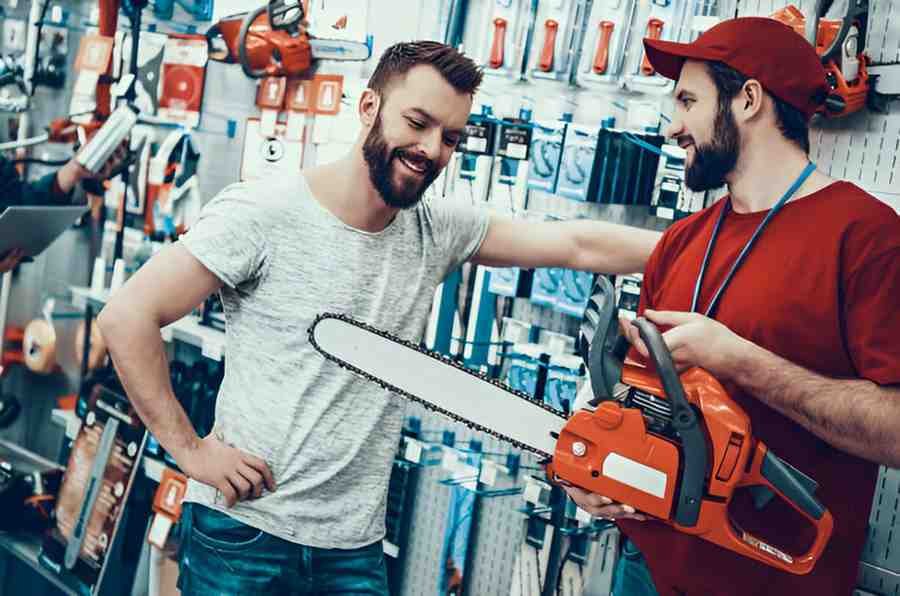If you’re in the market for an electric chainsaw, you’re likely overwhelmed by the number of options available. I’ve been there too. With so many brands, models, and features, it can feel like a daunting task to find the right one. In this guide, I’ll walk you through everything you need to know about electric chainsaws. By the end, you’ll have the knowledge to make an informed decision that suits your needs.
Table of Contents
Why Choose an Electric Chainsaw?
Electric chainsaws are becoming more popular for a reason. They’re quieter, cleaner, and easier to maintain compared to gas-powered models. If you’re tackling small to medium jobs like pruning, trimming, or cutting firewood, an electric chainsaw is often the best choice. They’re also lighter and easier to handle, making them ideal for beginners or those who prefer a hassle-free experience.
Key Advantages:
- Low Maintenance: No need to deal with fuel mixing or carburetor issues.
- Eco-Friendly: Produces zero emissions during use.
- Ease of Use: Plug it in or charge the battery, and you’re ready to go.
However, they’re not perfect. Electric chainsaws generally lack the raw power of gas models and require a power source or charged battery. Understanding your specific needs will help determine if an electric chainsaw is right for you.
What to Consider When Buying an Electric Chainsaw
Choosing the right chainsaw isn’t just about picking a trusted brand. It’s about finding a tool that matches your tasks, budget, and skill level. Here’s what you should consider:
1. Power Source: Corded vs. Cordless
Electric chainsaws come in two main types: corded and cordless. Each has its own strengths and limitations.
| Feature | Corded Electric Chainsaws | Cordless Electric Chainsaws |
|---|---|---|
| Power | Continuous, as long as connected to an outlet | Limited by battery life |
| Mobility | Restricted by cord length | Highly portable |
| Maintenance | Minimal | Requires battery charging and care |
| Weight | Generally lighter | Slightly heavier due to the battery |
Corded chainsaws are great for yard work close to your home, while cordless models excel for remote tasks or where portability is key.
2. Bar Length
The bar length determines the size of wood the chainsaw can handle. Here are some guidelines:
- 12-14 inches: Best for pruning and light cutting tasks.
- 16-18 inches: Good for medium tasks like cutting firewood.
- 20 inches or more: Suitable for larger jobs, but rare in electric models.
Think about the size of the branches or logs you’ll be cutting most often. A longer bar gives more cutting capacity but adds weight and reduces maneuverability.
3. Motor Power
Corded chainsaws measure power in amps, while cordless models use volts. A higher rating usually means more cutting power.
- 8-12 amps (corded): For light to moderate tasks.
- 14-15 amps (corded): Capable of handling tougher jobs.
- 18-40 volts (cordless): Ideal for small projects.
- 40 volts or more (cordless): Suitable for heavy-duty tasks.
4. Safety Features
Chainsaws are powerful tools, so safety is critical. Look for these features:
- Chain Brake: Stops the chain immediately to prevent accidents.
- Low Kickback Bar and Chain: Reduces the risk of kickback.
- Hand Guard: Protects your hands from debris.
- Safety Lock Switch: Prevents accidental starts.
5. Ease of Use
Consider features like tool-free chain tensioning, automatic oiling, and ergonomic handles. These can make a significant difference in your overall experience.
Top Electric Chainsaws in 2025
I’ve researched and tested some of the most popular electric chainsaws on the market. Here’s a detailed breakdown of my top picks.
1. Greenworks 16-Inch Corded Chainsaw
| Specification | Details |
|---|---|
| Bar Length | 16 inches |
| Motor | 14.5 amps |
| Weight | 9.3 lbs |
| Key Features | Tool-free chain tensioning, auto-oiling |
| Price | $100-$120 |
This model strikes a perfect balance between power and affordability. It’s ideal for medium-sized tasks and features a robust motor for consistent performance.
Pros:
- Powerful for its size
- Lightweight and easy to handle
- Affordable
Cons:
- Limited by cord length
2. DeWalt 20V MAX XR Cordless Chainsaw
| Specification | Details |
|---|---|
| Bar Length | 12 inches |
| Battery | 20V MAX XR |
| Weight | 8.8 lbs |
| Key Features | Compact, efficient brushless motor |
| Price | $150-$200 |
This is a top choice for portability and ease of use. It’s perfect for light cutting jobs and boasts impressive battery efficiency.
Pros:
- Highly portable
- Minimal noise
- Quick setup
Cons:
- Limited cutting capacity
3. Makita XCU03PT1 Cordless Chainsaw
| Specification | Details |
|---|---|
| Bar Length | 14 inches |
| Battery | 18V LXT Lithium-Ion (x2) |
| Weight | 10.4 lbs |
| Key Features | Brushless motor, variable speed trigger |
| Price | $300-$350 |
If you’re willing to invest in a premium option, the Makita XCU03PT1 delivers excellent power and performance.
Pros:
- Strong cutting ability
- Long battery life
- Ergonomic design
Cons:
- Expensive
Maintenance Tips for Electric Chainsaws
To get the most out of your chainsaw, regular maintenance is essential. Here’s what I recommend:
1. Keep the Chain Sharp
A dull chain not only slows you down but also strains the motor. Sharpen the chain periodically using a file or take it to a professional.
2. Oil the Chain Regularly
Ensure the chain stays lubricated during use. Many models come with automatic oilers, but always check the oil level before starting.
3. Inspect the Chain Tension
A loose chain can derail, while an overly tight one can damage the bar. Adjust the tension as needed, and always follow the manufacturer’s guidelines.
4. Clean the Chainsaw After Use
Remove debris and sawdust to prevent clogs. Use a brush or compressed air to clean hard-to-reach areas.
5. Store It Properly
Keep your chainsaw in a dry, cool place. Remove the battery or unplug it when not in use.
Final Thoughts
Choosing the right electric chainsaw comes down to understanding your needs and preferences. Whether you’re a homeowner tackling yard work or someone who needs a reliable tool for occasional use, there’s an option out there for you. Take your time, weigh the pros and cons, and invest in a chainsaw that feels right for your tasks.
If you have any questions or need further recommendations, feel free to ask. I’ve spent hours researching and testing these tools, and I’m happy to share more insights to help you make the best choice.





